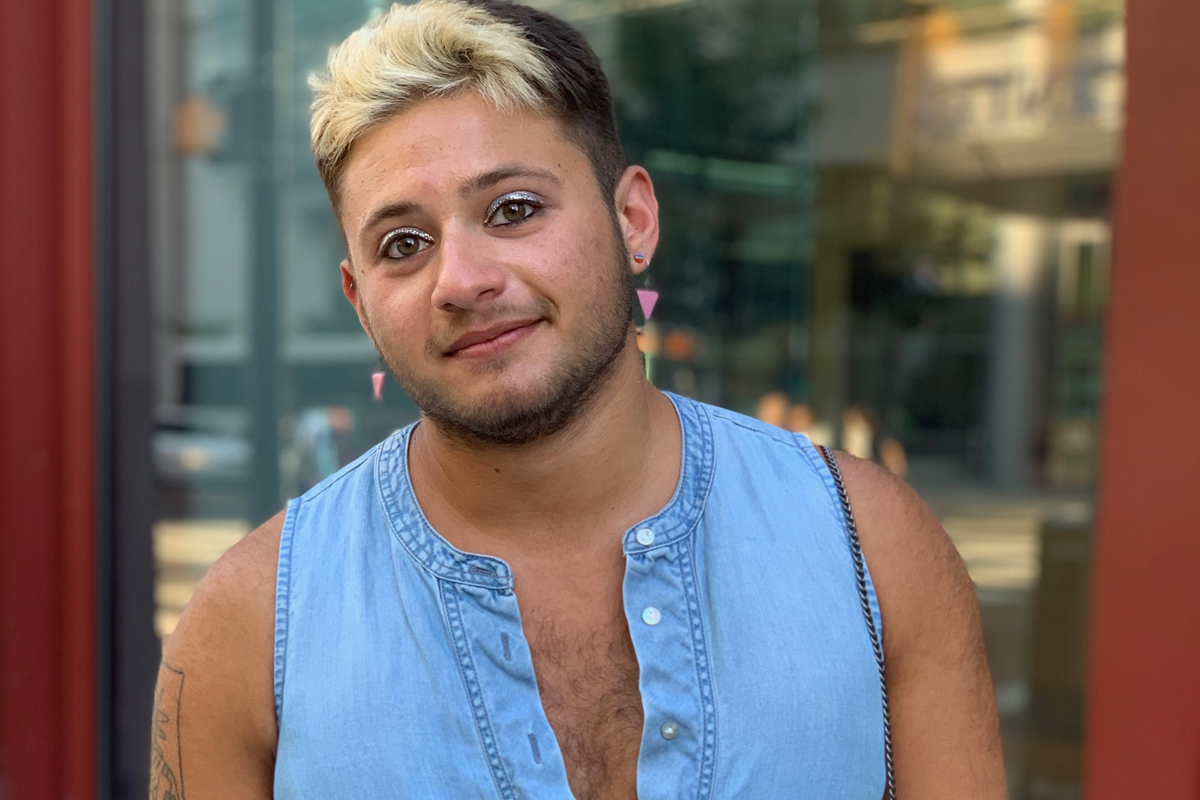“I think it’s always better for all kids to be taught by people who look like they do and can think like they do,” says Dylan Kapit. “You learn better when you are taught by someone like you, because they bring empathy and an understanding of who you are.”
Kapit possesses an especially broad capacity for empathy and understanding. The former special education teacher, who is receiving a master’s degree in Developmental Disabilities, came out at age 12 as queer; at age 18 as transgender; and, as a young adult, as being on the autism spectrum.
Dylan Kapit: M.A., Developmental Disabilities
“I’ve been really lucky, I’ve had people in my corner my whole life — people willing to fight for me,” says Kapit, who uses the pronouns they, theirs and them. The list includes a best friend with Down syndrome; the community at a summer camp for young people with disabilities, where Kapit worked for six years as a counselor; and classmates in high school, at Barnard College and at TC.
I’ve been really lucky, I’ve had people in my corner my whole life — people willing to fight for me. But a lot of folks who are queer, trans, have a disability or a combination of all three or more are not used to that kind of unconditional support.
-Dylan Kapit
“But a lot of folks who are queer, trans, have a disability or a combination of all three or more are not used to that kind of unconditional support”— so Kapit has made a commitment to “giving back” by “fighting for those with disabilities as others have fought for me.”
“It’s not that hard to be supportive of young people with disabilities,” says the Maryland native. “The reality is you just have to listen to what we have to say. People are sometimes quick to assume our perspectives aren’t valid or that we are not smart. This is just not correct. If someone is curious about our thinking they should just ask. We know what we’re talking about.”
Graduates Gallery 2020
Meet some more of the amazing students who earned degrees from Teachers College this year.
Kapit praises the “fierce advocates” in the TC Developmental Disabilities program for knowing exactly what to ask and for urging students to “listen to self-advocates” who understand the issues encountered by the disabled in the pursuit of a quality education.
It’s not that hard to be supportive of young people with disabilities. The reality is you just have to listen to what we have to say.”
-Dylan Kapit
By the end of the year, Kapit says with pride, “listen to the self-advocates” had become the students’ mantra as well. “We specifically owe this to Dr. Mazin, Dr. Jahromi, Sarah Aiken, Morgan Flanagan, Leah Gruber, Sarah Jones, Gaby Lee, Taylor Levin, Candelaria Ponceliz, and Jessica Rile.”
Following graduation, Kapit will head to the University of Pittsburgh to pursue a Ph.D. in Special Education, with a focus on teacher training and the development of a sexual education curriculum for people with autism. “We talked a lot in class about involving people with disabilities in policy and involving people with disabilities in developing curriculum. And that makes sense — because who can better help teachers serve young people with disabilities than someone with a disability?”
